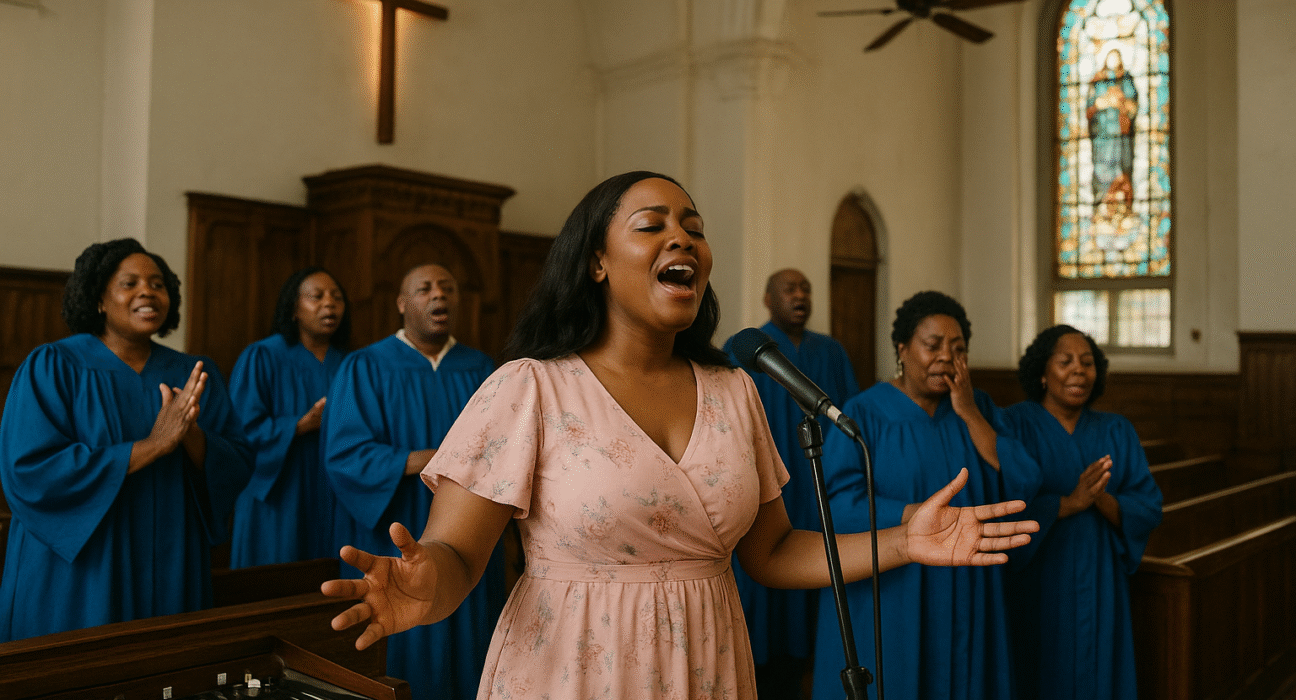Brooklyn’s Black Church Choirs Sing On as Congregations Dwindle

On Sundays in Brooklyn, the sound of gospel harmonies, clapping hands and the hum of Hammond organs still spills onto the streets, even as the congregations inside grow smaller.
In a borough once known for its packed pews and multiple church choirs in nearly every parish, fewer voices now rise in unison. A combination of gentrification, generational shifts and declining religious affiliation has left choirs with fewer members — but their music remains a steadfast presence.
At Concord Baptist Church of Christ in Bedford-Stuyvesant, Jessica Howard, 25, recently led the gospel classic God Is before the congregation. Wearing a pastel floral dress, she sang of God as “joy in sorrow” and “strength for tomorrow,” drawing tears from fellow singers.
“As a Black Christian person, as a descendant of slaves, I think when I sing, I feel really connected to my ancestors,” Howard said. “I really feel sometimes like it’s not just me singing, it’s my lineage singing.”
Founded in 1847, Concord is the borough’s oldest historically Black congregation. The church’s music ministry is part of a tradition rooted in the 19th century, when nearby Weeksville was among the largest free Black communities in the United States.
Louise Nelson, historian at Berean Baptist Church in Crown Heights, said music remains essential to worship. “The songs that uplifted us and kept us going through the midst of our misery — music is who we are,” she said. “I don’t think you can have a church today without the music because it brings unity.”
According to Pew Research Center data, monthly attendance among Black Protestants dropped from 61% in 2019 to 46% in 2023 — the steepest decline among major US faith groups. The pandemic hastened the fall, with many worshippers opting for streamed services instead of returning to in-person gatherings.
Glenn McMillan, Concord’s music director, recalls when the church’s choir had 100 voices in 2006. Today, it has around 30. “This generation does not see church as important as it was back in the day,” he said.
Veteran singer Gwen Davis of Berean Baptist remembers Easter services in the 1960s with more than 400 attendees and four choirs. Today, a typical Sunday sees about 150 in person and 100 online. She blames part of the decline in choir participation on reduced music education in city schools.
Shifting neighbourhood demographics have also changed congregations. Between 2010 and 2020, Crown Heights lost nearly 19,000 Black residents, while Bedford-Stuyvesant’s Black population dropped from over 75% in 2000 to around 41% in 2020.
Some churches have closed altogether. St. Teresa of Avila in Crown Heights, the first US parish to offer Mass in Creole, will shut its doors this year. For longtime cantor Mike Delouis, the closure would be a cultural and spiritual loss. “Even through the process of gentrification, there are people that hear the music and they come in,” he said.
For Howard, the hope is to carry the tradition forward. “I’d like to follow in that tradition,” she said. “Choir singers are some of the most faithful churchgoers… a community within the church community.”













